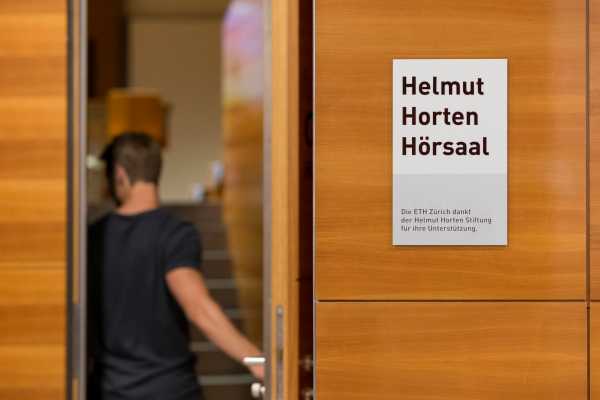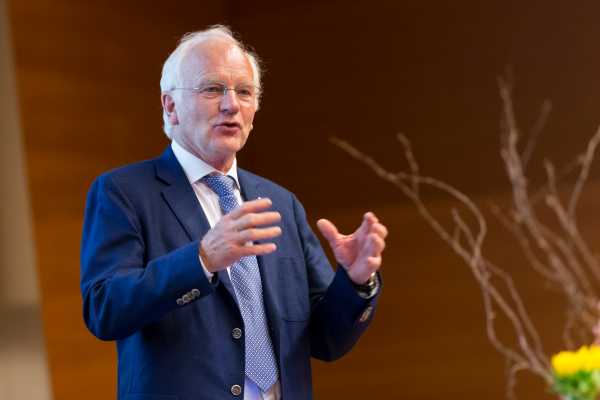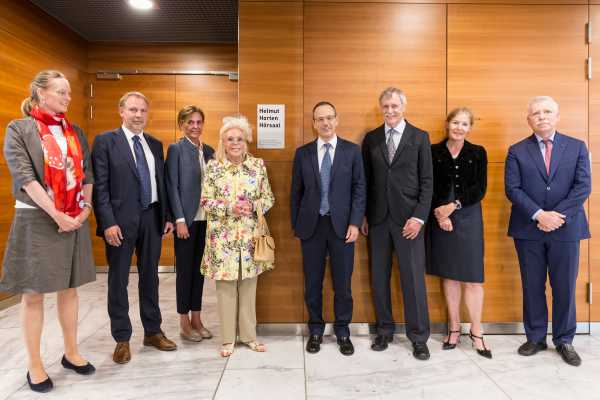Boost for Zurich biomedicine
The Helmut Horten Foundation has supported Zurich’s medical hub for many years. Now, a new donation to ETH will enable the strengthening of the Zurich-Ticino “health axis”.

The name Helmut Horten is a significant one in Swiss medicine. The foundation, which was set up in 1971 by the German department store pioneer Helmut Horten, aims to support healthcare through funding for medical research and teaching institutions. The focus of the foundation’s activities is Switzerland and it has distributed CHF 120 million since its inception.
CHF 68 million of this has gone to ETH, the university (UZH) and University Hospital Zurich. The funding supports both the external page Horten Centre, which prepares clinical-medical data from scientific studies and makes it available for practical use, and universities, which receive mainly start-up funding for young researchers – from doctoral students to young professors – and doctors.
Six million for human immunology
The latest donation will enable ETH to once again build up its biomedical capacities. The foundation has invested CHF 6 million in two ETH professorships: the successor to the recently retired Antonio Lanzavecchia, ETH Professor of Human Immunology at the Institute for Research in Biomedicine (IRB) at Università della Svizzera italiana, and a new assistant professor at ETH Zurich.
The IRB, which is closely connected with ETH, specialises in research into the human body’s resistance to infections, tumours and degenerative diseases. Lanzavecchia’s successor external page Federica Sallusto, Professor of Medical Immunology, will set up a new group at ETH Zurich and continue to lead her research group in Bellinzona to strengthen the successful collaboration between ETH and the IRB. Sallusto has made important contributions to our current understanding of human immunology, most recently with her studies of human T-cells, which play a key role in the human immune system.
The new assistant professorship focuses on microbiome research and will be filled by Shinichi Sunagawa. Sunagawa’s work centres on the interaction of microorganisms with the human immune system and with viruses, and transposes findings from marine and environmental biology to human biology.
The inauguration of the lecture theatre "Helmut Horten" (All images: ETH Zurich / Alessandro della Bella)



A strong partnership
As a demonstration of ETH’s gratitude for the foundation’s many years of support, lecture theatre G3 in the HCI building on the Hönggerberg campus was named after Helmut Horten on 12 June. “The dedication of this lecture theatre is a small sign of our appreciation for the foundation’s significant and sustained commitment,” said ETH President Lino Guzzella at the event. He added that given the central importance of health science and medicine to ETH, it is hoped that a strong partnership with the Horten Foundation will continue to provide significant impetus to Zurich as a research centre.
Commitment brings results
Heidi Goëss-Horten, Helmut Horten’s widow, and the Board of Trustees also expressed appreciation for the development of collaboration with Zurich institutions in medical research. “The seeds have germinated,” said Hans Hengartner, member of the Board of Trustees and Professor Emeritus at UZH and ETH. “We can look back with satisfaction on many years of fruitful work in which biomedical research has developed in leaps and bounds. We are pleased that the Helmut Horten Foundation has played a part in ensuring that the Zurich universities and the university hospital were able to help shape these developments.”
Comments
No comments yet